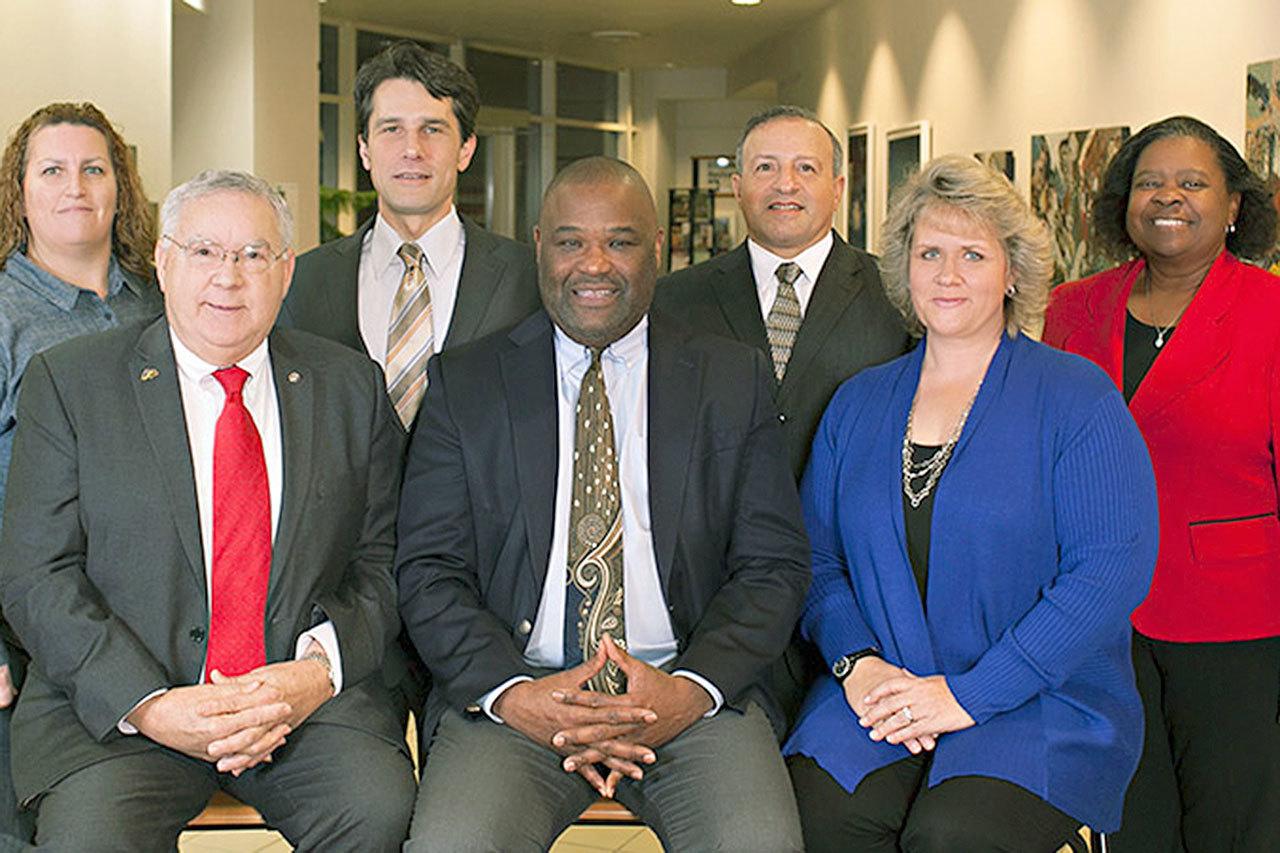A debate about whether to raise property taxes looms as the Kent City Council prepares to vote Tuesday on the 2017-2018 city budget.
The council’s Operations Committee voted 3-0 this week to advance the property tax increase to the seven-member council. But council members Bill Boyce and Dana Ralph each said they voted to advance the measure just so the full council could debate the issue.
“I’ll move this forward but I’m not a big fan of an increase in the property tax rate,” Boyce said at the meeting. “Two or three council members have some alternatives, so hopefully we will have that dialogue on the 13th. I will move it on hoping that someone comes up with a creative idea to make this a little better.”
So far in budget debates, the council has gone along with Mayor Suzette Cooke’s proposal to use the city’s banked property tax capacity to raise $2 million each of the next two years to help fund parks capital and major maintenance projects, including renovations at Lake Fenwick Park, West Fenwick Park and Kent Memorial Park.
Kent has about $6 million in what’s known as banked capacity because the city reduced its property tax levy by $1 per $1,000 assessed valuation in 2011 after voters in 2010 approved the formation of the Kent Fire Department Regional Fire Authority (RFA), which levies a property tax of $1 per $1,000 assessed valuation.
If the council approves the property tax jump at its 7 p.m. Tuesday meeting, the owner of a $420,000 house would see a tax jump of about $53 in 2017, according to city documents. The owner of a $280,000 home would see about a $35 hike.
The use of banked capacity allows the city to raise property taxes above the 1 percent annual state cap imposed by Initiative 747 approved by voters in 2001. The council approved use of the banked capacity in 2014 as part of the 2015-16 budget, which included a general fund budget of $81 million for 2015.
The council will consider a 2017 general fund budget of $94 million. The council has increased the budget each year as tax revenue continues to jump from sales, property and business and occupation taxes.
Boyce said during an interview after the committee meeting that he has issues with raising property taxes.
“It’s all about making sure we don’t impact the taxpayer as much,” Boyce said. “We already have the 1 percent automatic increase that already impacts and then you add this additional and it’s more increase to the taxpayer.”
The use of banked capacity would mean a 9.8 percent city property tax jump next year, according to city documents.
Boyce declined to reveal what other options might be considered to replace the property tax increase in order to raise $2 million for park projects.
“I don’t want to say just yet,” Boyce said. “Two council members have two different options to bring to the council next Tuesday. One of those options probably could make it work but I don’t want to say just yet because there hasn’t been any dialogue yet and we want to reach out to each council member to vet it.”
Boyce also said he prefers to keep the $6 million in banked capacity for potential use in about four years when the state is expected to take away the annual sales tax credits the city receives for annexing 24,000 people in the Panther Lake area in 2010. Kent receives about $3.7 million per year as part of a 10-year agreement with the state. The city certifies an amount each year of the difference between expenses in the annexation area and anticipated revenues from property taxes, sales taxes and other sources.
Talk to us
Please share your story tips by emailing editor@kentreporter.com.
To share your opinion for publication, submit a letter through our website https://www.kentreporter.com/submit-letter/. Include your name, address and daytime phone number. (We’ll only publish your name and hometown.) Please keep letters to 300 words or less.

